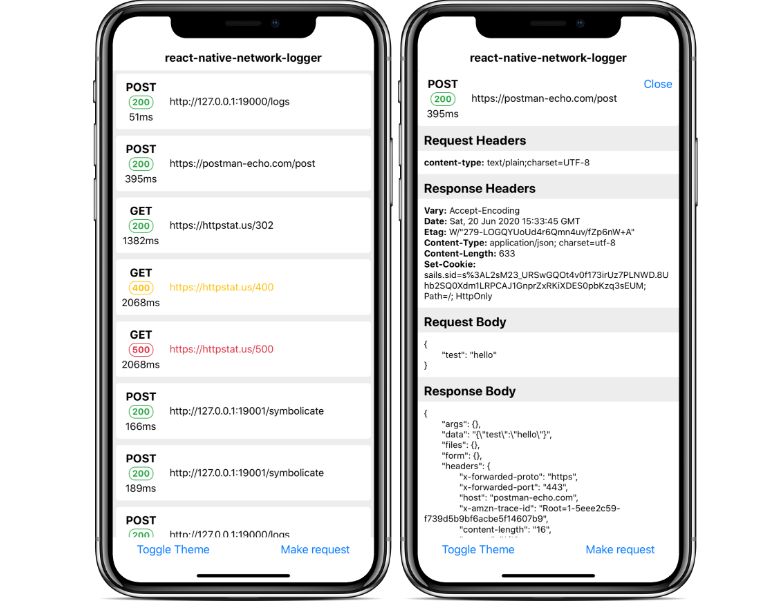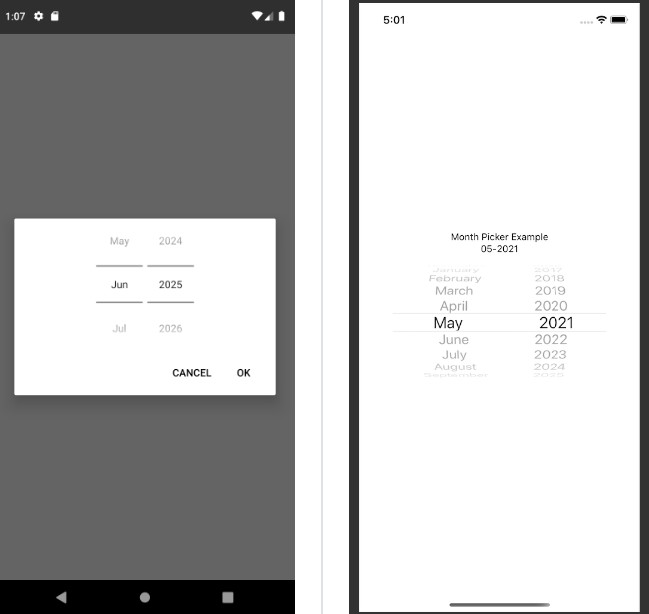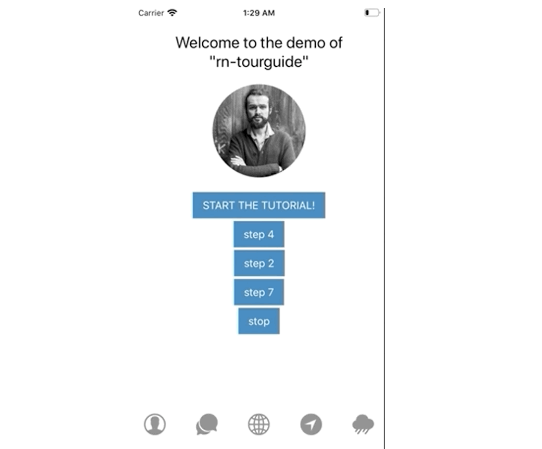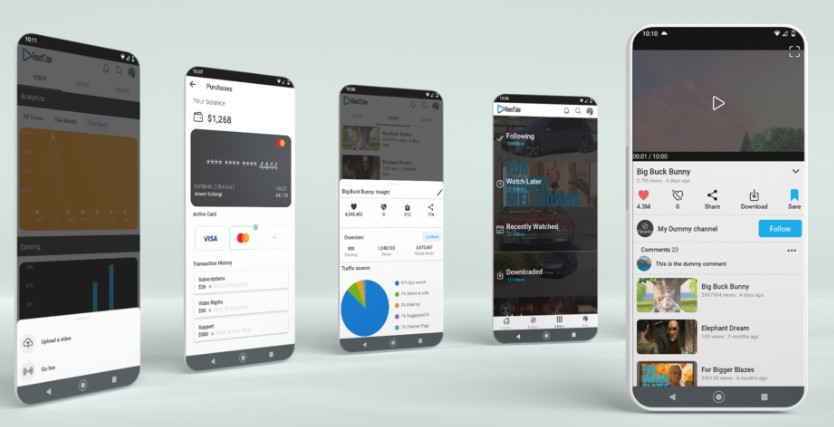react-native-network-logger
An alternative to Wormholy but for both iOS and Android and with zero native dependencies.
Features
- Log networks requests on iOS and Android
- View network requests made with in app viewer
- Debug network requests on release builds
- Individually view headers sent, received and body sent and received
- Copy or share headers, body or full request
- Share cURL representation of request
- Zero native or JavaScript dependencies
- Built in TypeScript definitions
Screenshots
iOS
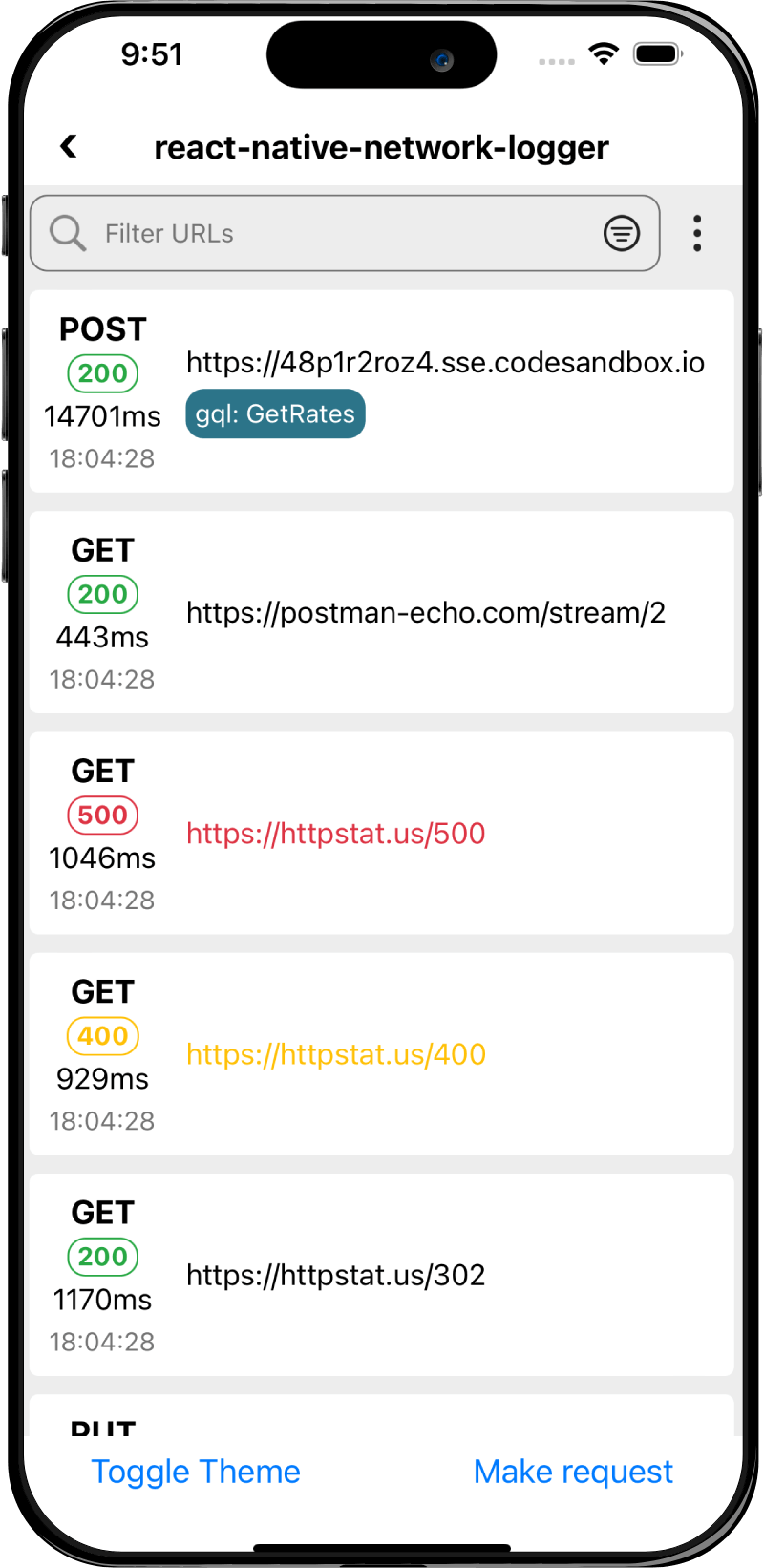
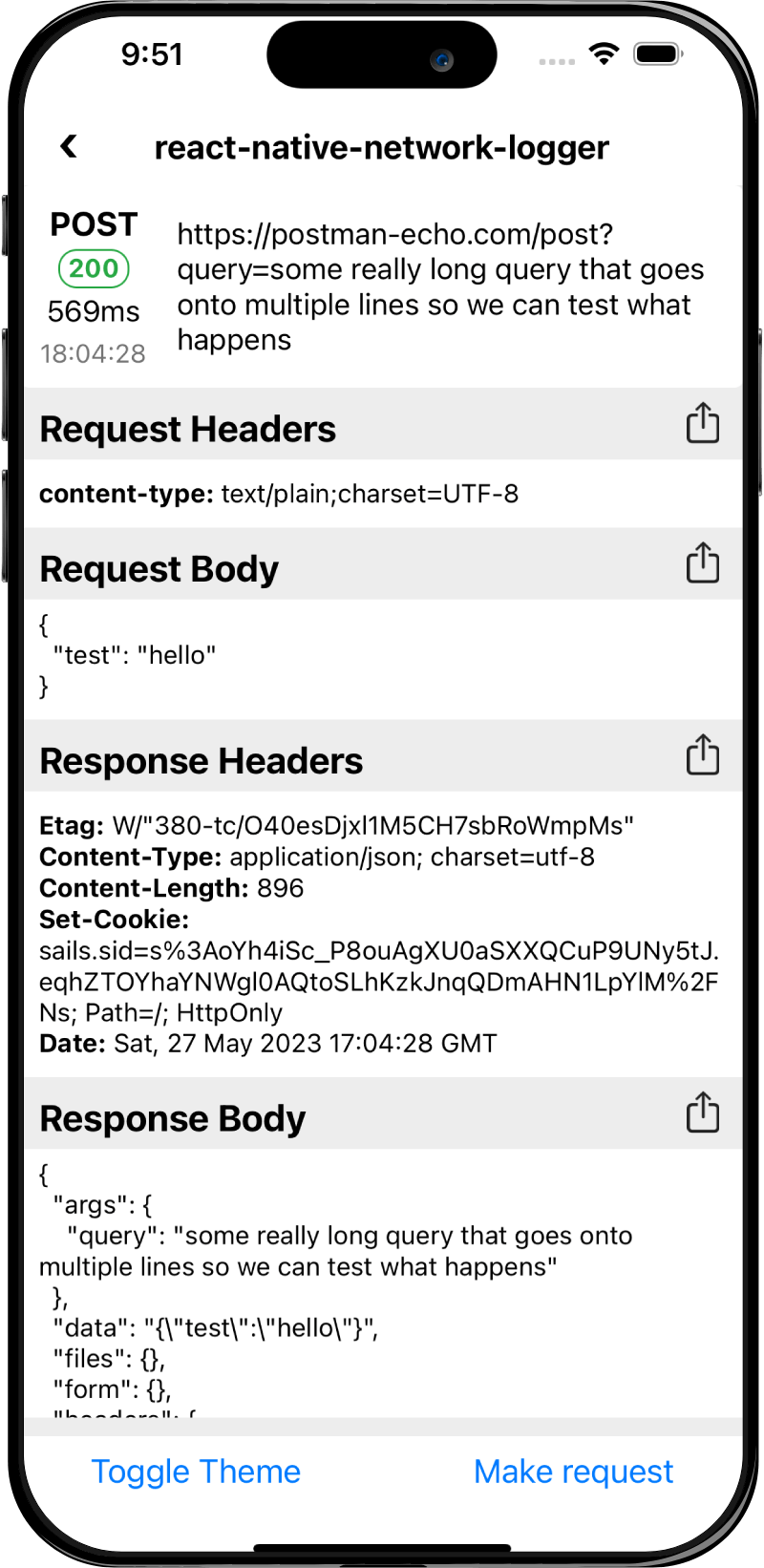
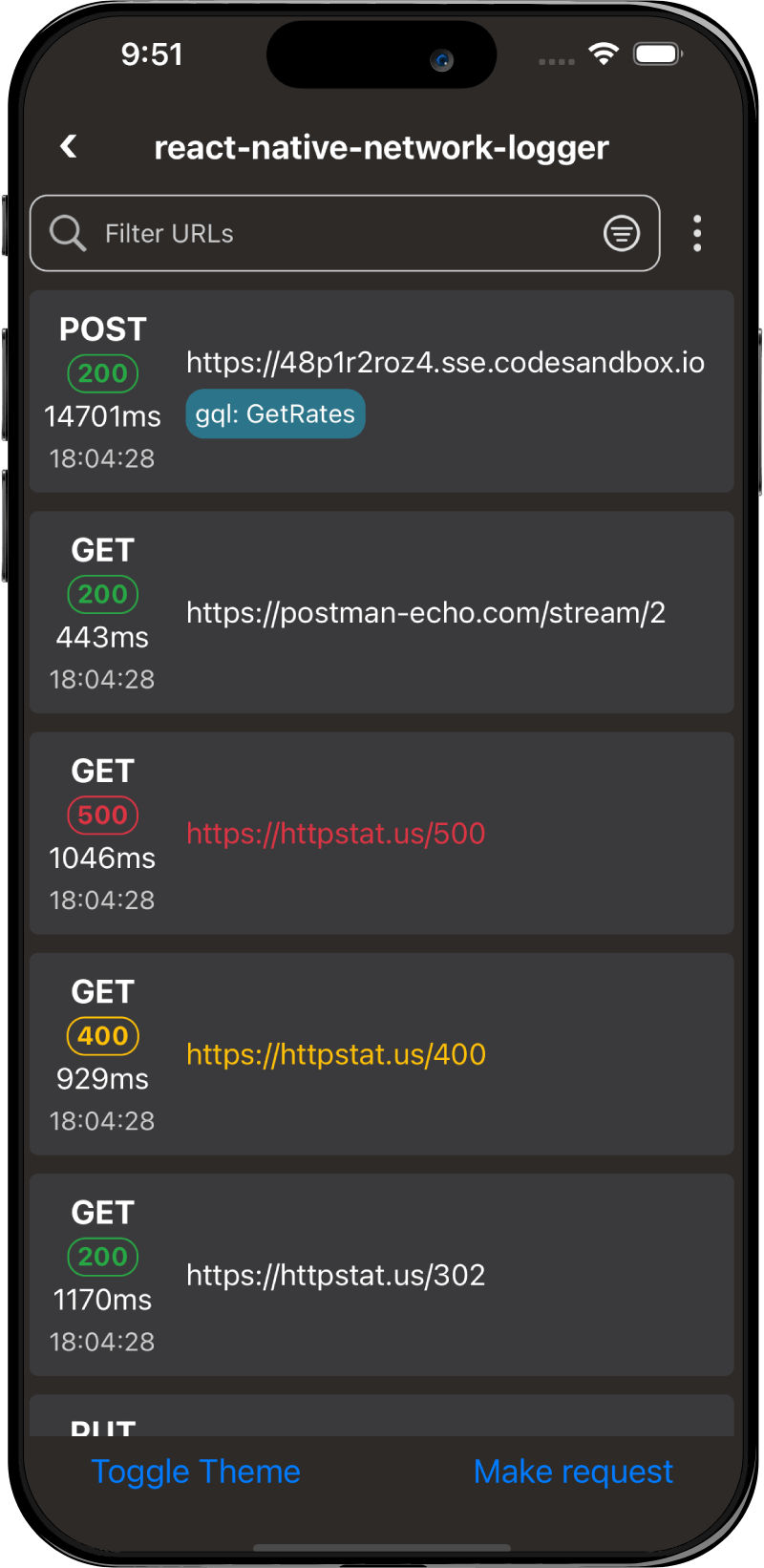
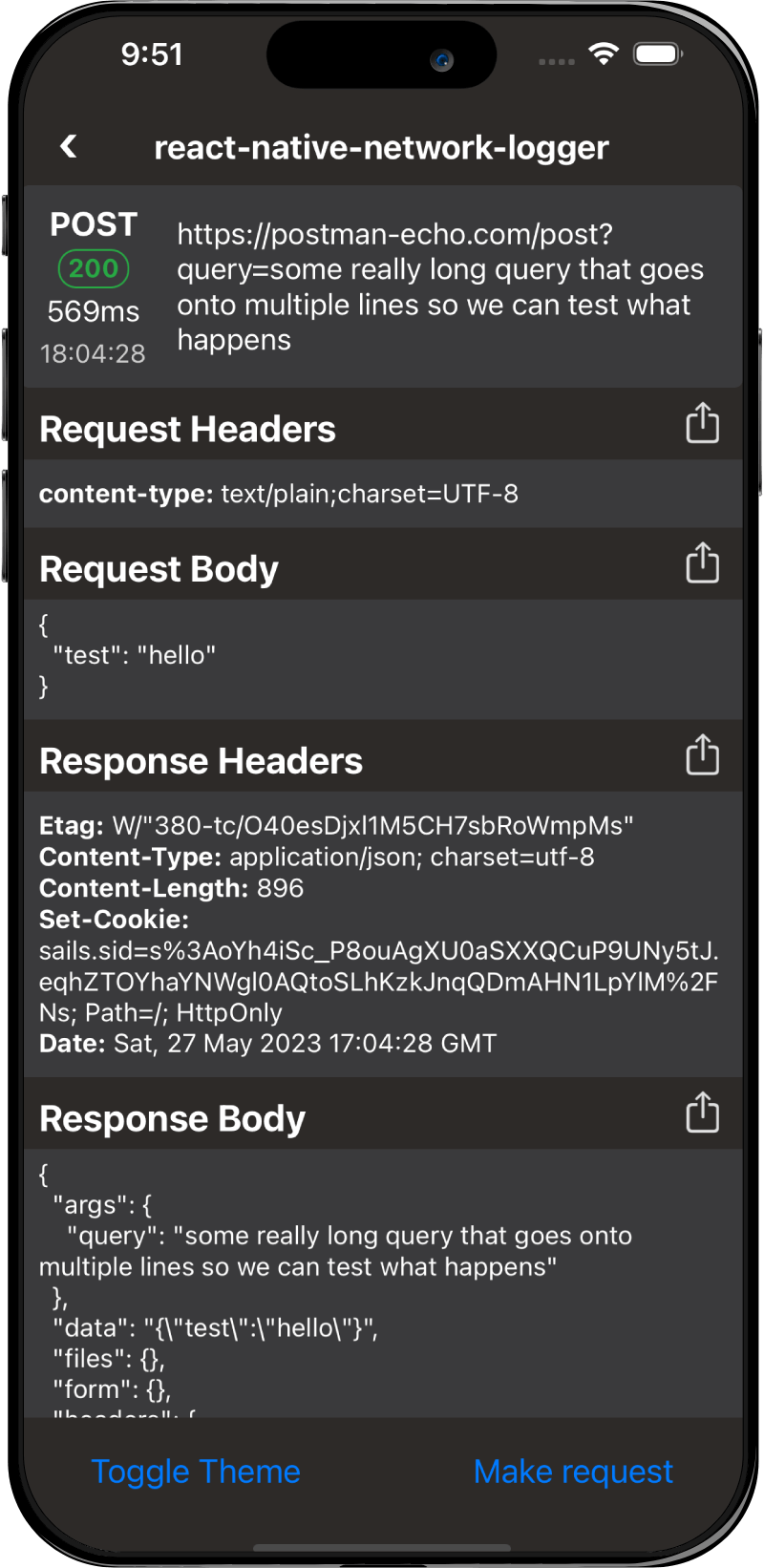
Android
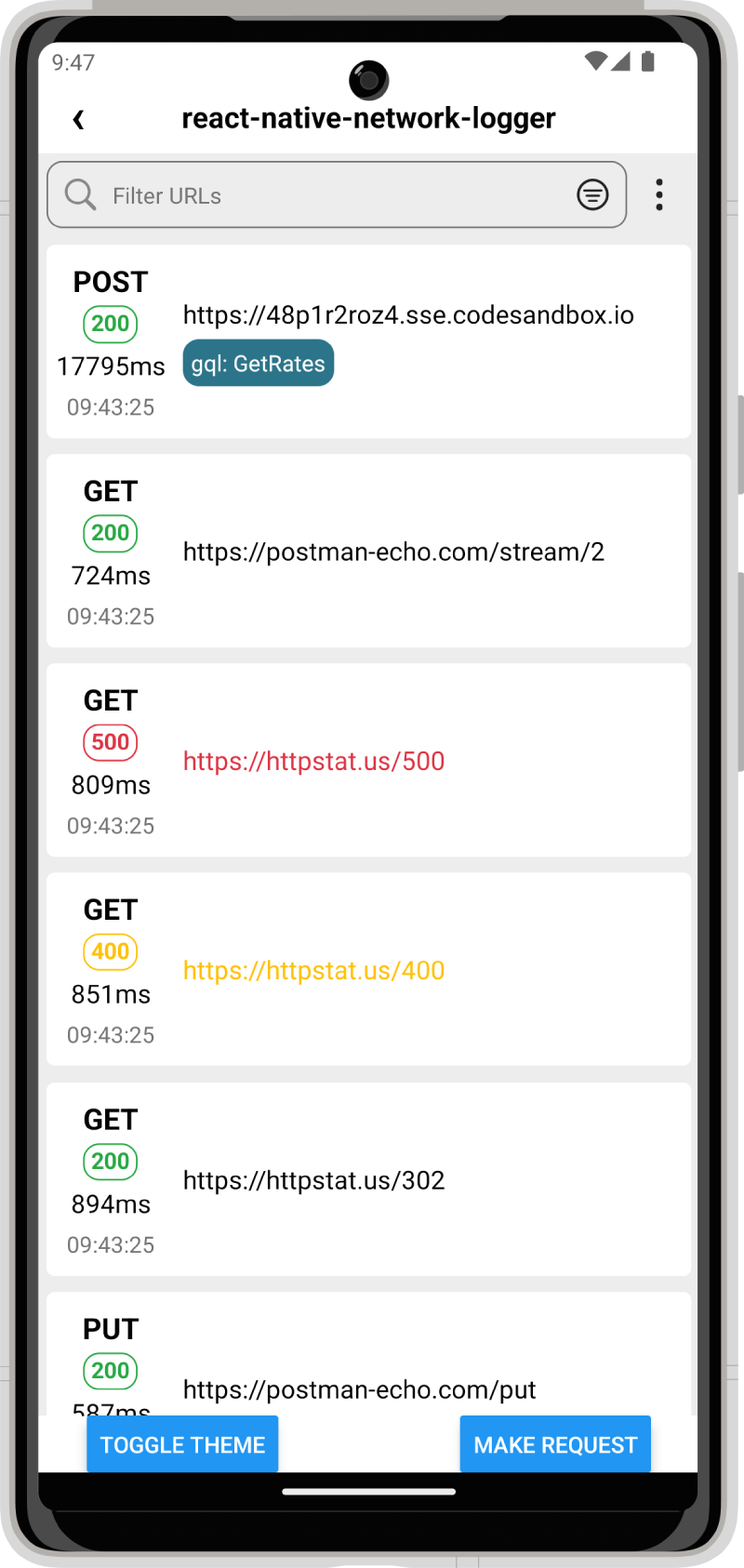
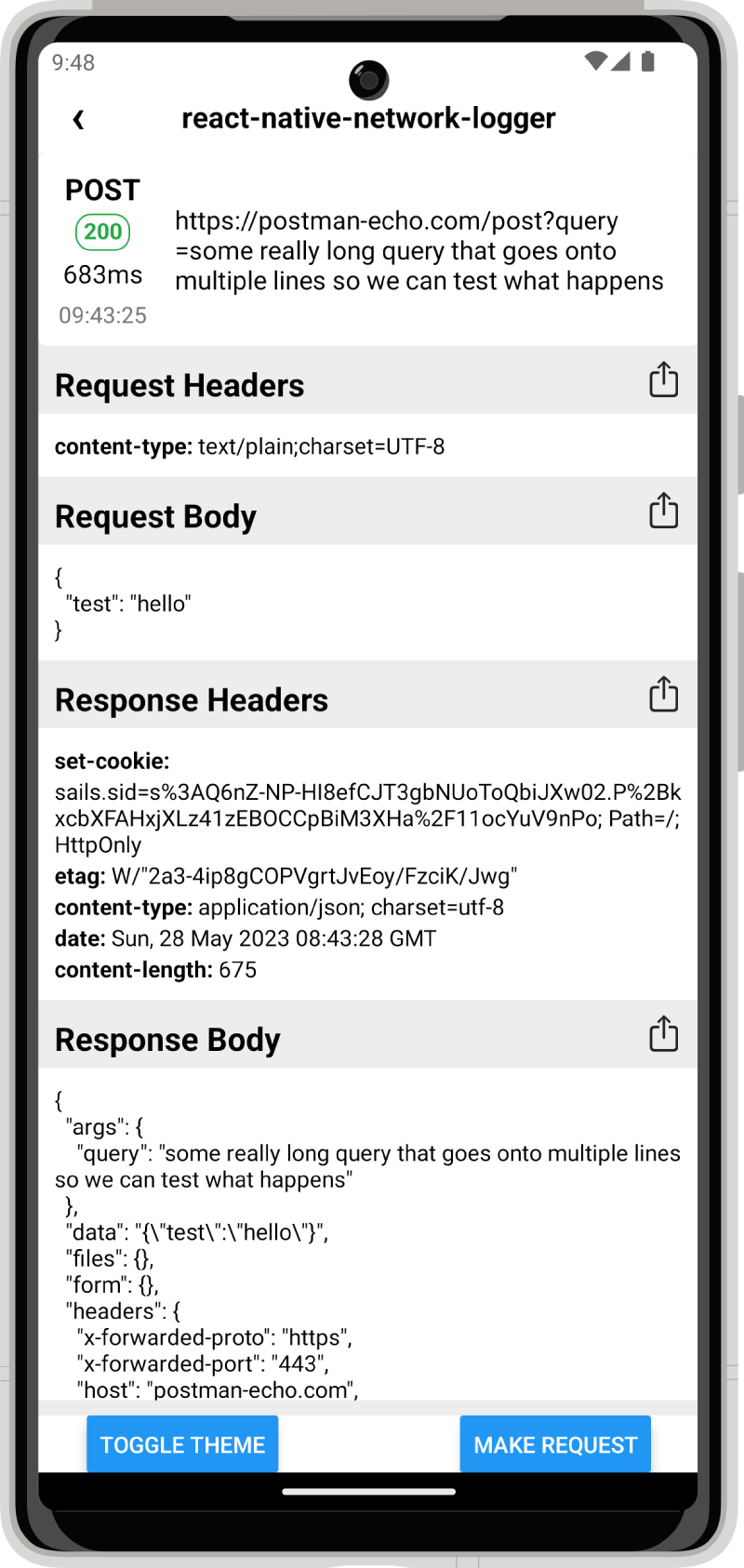

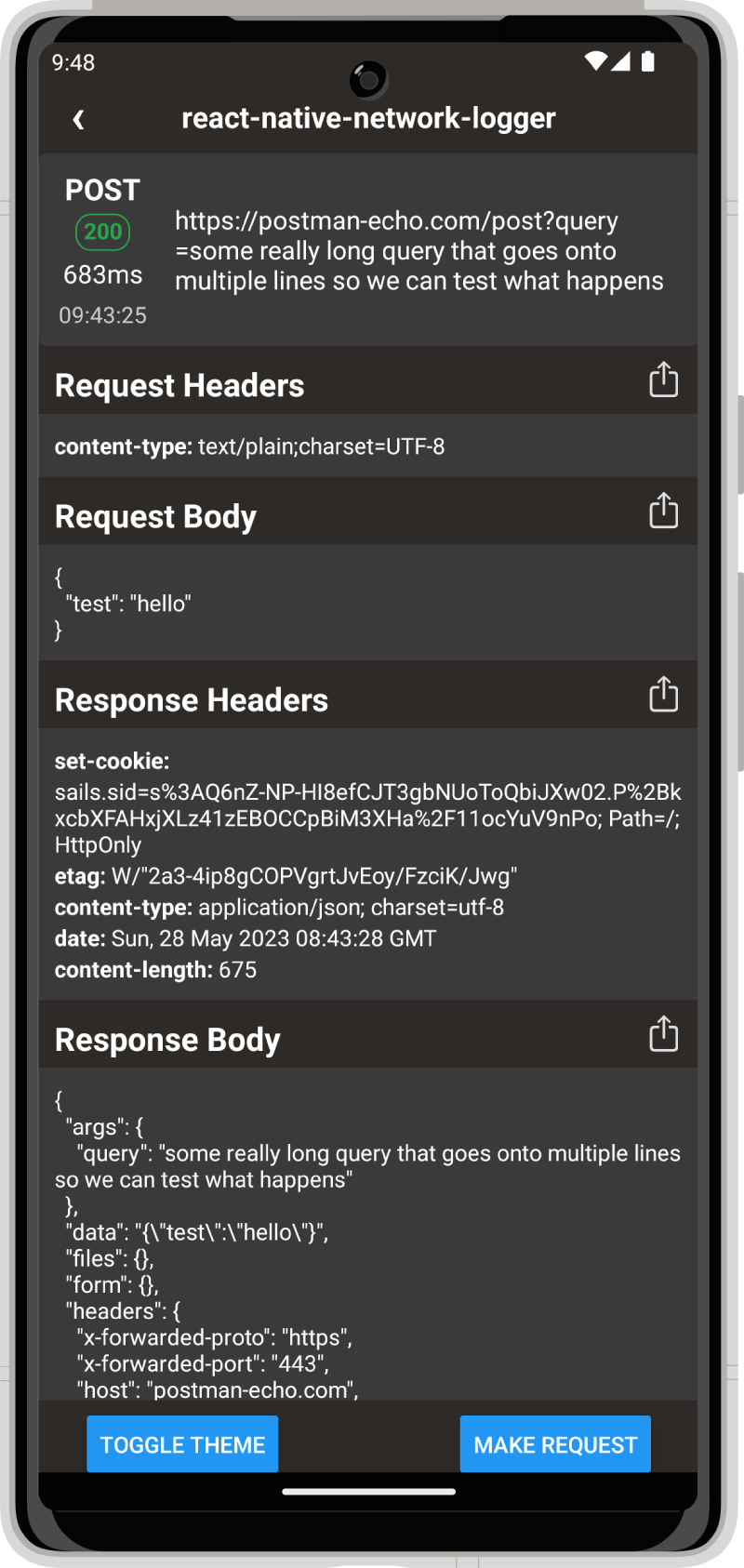
Setup
Install
yarn add react-native-network-logger
or
npm install --save react-native-network-logger
Start Logging
Call startNetworkLogging in your apps entry point to log every request, or call it on a button press to manually trigger it.
import { startNetworkLogging } from 'react-native-network-logger';
startNetworkLogging();
AppRegistry.registerComponent('App', () => App);
Display Requests and Responses
import NetworkLogger from 'react-native-network-logger';
const MyScreen = () => <NetworkLogger />;
Themes
You can change between the dark and light theme by passing the theme prop with "dark" or "light".
import NetworkLogger from 'react-native-network-logger';
const MyScreen = () => <NetworkLogger theme="dark" />;
Logging options
You can configure the max number of requests stored on the device using by calling startNetworkLogging with the maxRequests option. The default is 500.
startNetworkLogging({ maxRequests: 500 });
Example App
To test the example app, after cloning the repo, install the required dependencies by running:
yarn bootstrap
Then start the example app by running:
yarn example start
You should then be able to open the expo server at http://localhost:3000/ and launch the app on iOS or Android.
